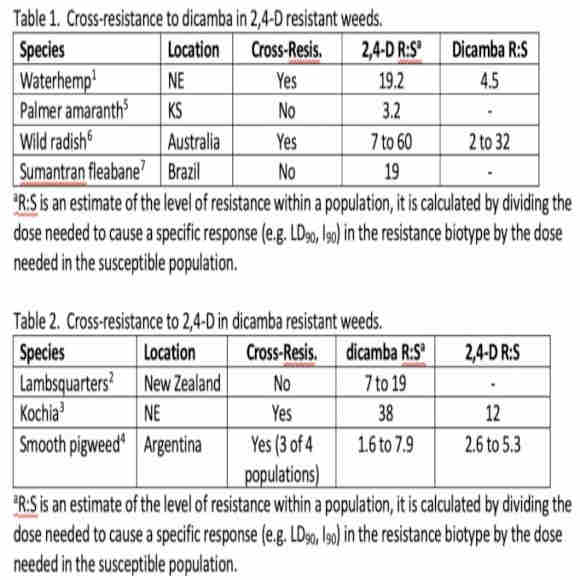By Dr. Bob Hartzler
Reliance on synthetic auxin herbicides (HG 4) has increased following the introduction of dicamba and 2,4-D resistant soybean. A common question among users of these products is: “If I use one trait repeatedly and select for resistance to that herbicide, will I be able to switch to the other trait to control the resistant population?”
I did a quick, non-comprehensive literature search for papers that evaluated cross-resistance to 2,4-D and dicamba (Tables 1 and 2). Biotypes that were selected by one of the herbicides had cross-resistance to the other in about 50% of the situations. In most cases where cross-resistance occurred, the level of resistance (R:S) was lower to the herbicide not responsible for selection than for the herbicide that selected the resistance (i.e. a population selected by repeated 2,4-D use had a lower level of resistance to dicamba than to 2,4-D).

Numerous mechanisms are known to provide resistance to synthetic auxin herbicides, including insensitive target sites, enhanced metabolism, and altered translocation. The specific mechanism found in a weed probably influences the likelihood of cross-resistance. Several populations of waterhemp and Palmer amaranth resistant to synthetic herbicides have been identified in soybean producing states. While cross-resistance between 2,4-D and dicamba is not a given, it occurs frequently enough to reinforce the need for integrated management to sustain the value of these herbicides.
Source : iastate.edu